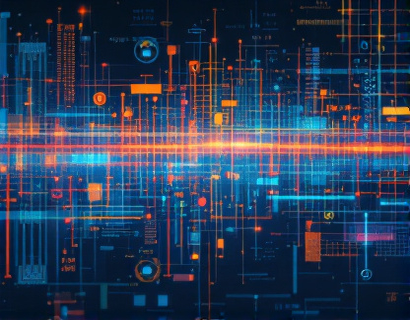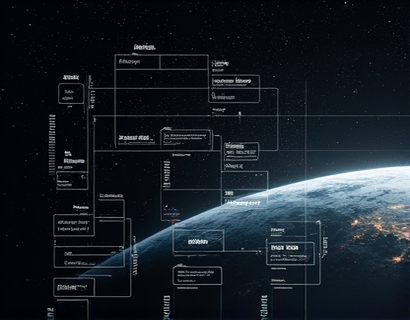Decentralized DAO Management: Revolutionizing Governance with Advanced Analytics and Collaboration Tools
In the rapidly evolving landscape of decentralized finance and autonomous organizations, the management of Decentralized Autonomous Organizations (DAOs) has become a critical area of focus. Traditional governance models are being transformed by innovative software solutions that leverage advanced analytics and collaboration tools. This shift aims to enhance transparency, efficiency, and decision-making within DAOs, enabling them to achieve sustainable growth and maximize their potential in the decentralized ecosystem.
Understanding DAO Governance
Before delving into the advancements in DAO management, it's essential to understand the core concept of DAO governance. A DAO is a digital entity governed by smart contracts on a blockchain, allowing for decentralized decision-making. Governance in a DAO involves proposing, discussing, and voting on changes to the organization's protocols and policies. This process is typically open to all token holders, ensuring a democratic and transparent approach to management.
The Need for Advanced Governance Tools
As DAOs grow in complexity and scale, traditional governance methods face significant challenges. Managing a large number of proposals, tracking voter behavior, and ensuring transparency in transactions become increasingly difficult. This is where advanced governance tools come into play, offering solutions that streamline processes, enhance collaboration, and provide comprehensive analytics to support informed decision-making.
Streamlining Governance Processes
Advanced software solutions for DAO management introduce a range of features designed to simplify and optimize governance operations. These tools automate routine tasks such as proposal tracking, voting mechanisms, and transaction logging. By automating these processes, administrators can focus on strategic decision-making rather than getting bogged down in administrative details.
One key feature is the proposal management system. This system allows members to submit, review, and vote on proposals efficiently. Administrators can set rules for proposal eligibility, prioritize critical issues, and ensure that all proposals are transparently recorded on the blockchain. This not only enhances the governance process but also builds trust among members by providing a clear and immutable record of all activities.
Enhancing Collaboration
Collaboration is a cornerstone of successful DAO governance. Advanced tools facilitate better communication and cooperation among members, regardless of their geographical location. Discussion forums, chat integrations, and collaborative document editing are just a few features that enable real-time interaction and knowledge sharing.
These collaboration tools help bridge the gap between token holders with different levels of technical expertise. By providing user-friendly interfaces and intuitive design, even those with limited blockchain knowledge can participate actively in governance discussions and contribute to decision-making processes.
Comprehensive Analytics for Informed Decisions
Data-driven decision-making is crucial for the sustainable growth of DAOs. Advanced analytics tools provide deep insights into various aspects of DAO operations, from member engagement to financial health. These insights empower administrators to make informed decisions that align with the organization's long-term goals.
One of the key benefits of these analytics tools is their ability to track and analyze voting patterns. By understanding how members vote on different proposals, administrators can identify trends, gauge sentiment, and tailor future proposals to better align with the community's preferences. This data can also help in identifying inactive members and designing strategies to increase participation.
Financial analytics are equally important. Tools that monitor transactions, budget allocations, and revenue streams provide a clear picture of the DAO's financial health. Administrators can set budget alerts, track expenses, and ensure that funds are used efficiently and transparently. This level of transparency is vital for maintaining trust and accountability within the organization.
Enhancing Transparency
Transparency is a fundamental principle of decentralized governance. Advanced governance tools enhance this principle by providing real-time access to all relevant data. Blockchain's inherent transparency is leveraged to ensure that all transactions, proposals, and discussions are publicly visible and immutable.
Dashboards and reporting features offer a centralized view of key metrics and KPIs, making it easier for members to stay informed. Administrators can customize dashboards to display the most critical information, ensuring that decision-makers have the necessary data at their fingertips. This level of transparency not only builds trust but also encourages active participation from all members.
Security and Compliance
Security is a paramount concern in the decentralized ecosystem. Advanced governance tools incorporate robust security measures to protect the DAO from potential threats. This includes multi-signature wallets, audit trails, and regular security audits to ensure that smart contracts and transactions are secure and tamper-proof.
Compliance with regulatory requirements is another critical aspect. As the regulatory landscape for decentralized organizations evolves, governance tools must adapt to ensure adherence to local and international laws. Features such as compliance checks, reporting tools, and legal templates help administrators navigate the complex regulatory environment and minimize legal risks.
Case Studies and Real-World Applications
Several DAOs have successfully implemented advanced governance tools, demonstrating their practical benefits. For instance, a decentralized content platform used a proposal management system to streamline the content creation process. By allowing community members to propose and vote on new content ideas, the platform saw a significant increase in user engagement and content diversity.
Another example is a decentralized lending protocol that utilized comprehensive analytics to optimize its lending algorithms. By analyzing borrower behavior and market trends, the protocol was able to adjust interest rates and credit limits dynamically, leading to improved loan outcomes and increased user satisfaction.
Challenges and Future Directions
While advanced governance tools offer numerous benefits, there are challenges that need to be addressed. One major challenge is the adoption rate among DAO members. Some token holders may be resistant to change or lack the technical expertise to use new tools effectively. Education and training programs can help overcome this barrier, ensuring that all members can benefit from the enhanced governance capabilities.
Another challenge is the interoperability of different tools and platforms. As the ecosystem grows, there is a need for standardized protocols and APIs that allow seamless integration of various governance tools. This will facilitate a more cohesive and efficient governance experience across different DAOs.
Looking ahead, the future of DAO governance is promising. The integration of artificial intelligence and machine learning can further enhance analytics and decision-making processes. AI-driven insights can predict trends, identify potential risks, and suggest optimal strategies, taking governance to a new level of sophistication.
Conclusion
The evolution of DAO governance through advanced analytics and collaboration tools represents a significant step forward in decentralized management. These innovations not only streamline governance processes but also foster a more transparent, collaborative, and data-driven environment. By embracing these tools, DAOs can unlock their full potential, drive sustainable growth, and thrive in the dynamic decentralized ecosystem.










































